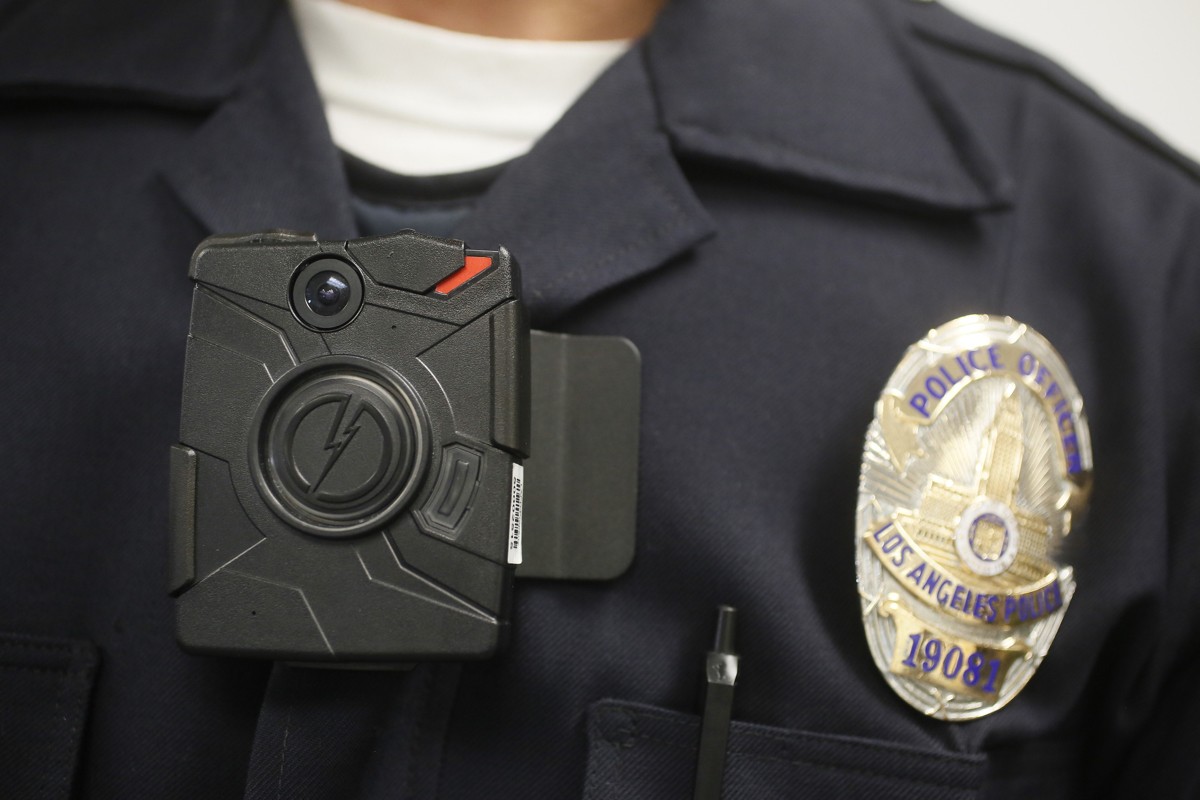Judge Rules Against Police Union on Body-Worn Cameras

photo via AP
A pilot program to test out body-worn cameras on Boston police officers is set to go forward as planned after a Superior Court judge on Friday ruled against union officials, who had sought to block the program.
Judge Douglas Wilkins announced his decision late Friday morning, according to multiple reports. He ruled that Boston Police Department leadership does have the authority to force police to wear the cameras. The pilot program is supposed to begin Monday, Sept. 12.
The move comes after months of delays implementing the city’s first-ever test-run of body-worn cameras on law enforcement, amid calls for use of the equipment and for broader reform of policing in the wake of high-profile police shootings around the country.
Slow to start from the outset, the pilot program’s planned launch this month has been rife with conflict. After police and union officials struck a deal this summer, the program was first intended to be volunteer-based: 100 officers would step up to be fitted with cameras for six-months, and for their efforts be awarded a $500 stipend. But not a single police officer (out of more than 2,000 in the city) volunteered, throwing yet another wrench in the process and stoking speculation that union leadership had dissuaded its membership from registering.
Arguing that forcing police to wear the cameras against their will was a breach of contract, the Boston Police Patrolmen’s Association took the city to court, asking for an injunction to halt the program. BPD top brass, including Commissioner William Evans and union president Patrick Rose, took part in two days of testimony earlier this week. We learned a lot about what happened behind the scenes at through this process, including that officers had allegedly been warned of “sanctions” if they volunteered for the pilot.
The judge appears to have addressed the union’s role in volunteer recruitment in his 19-page ruling, according to reports.
MORE: Judge rules #BPPA “influenced” members with “strong position… that NOBODY in BPPA membership should volunteer” for #bodycam program
— WBZ NewsRadio (@wbznewsradio) September 9, 2016
According to the Globe, the judge referred to the lack of volunteers for the pilot as “in significant part, self-inflicted” in the ruling, and wrote that “an injunction effectively rewarding the BPPA for its lackluster efforts to ensure the… successful implementation would be unjust.”
The hearings earlier this week also underscored Evans’ recent change of heart on body-worn cameras. Initially cool to the idea—he said he believed his force was competent enough not to need them—he now says he supports them, arguing among other things that they can help clear a cop of suspicion if they are involved in the justified shooting of a civilian. As a show of support for the program, eight members of Evans’ command staff volunteered at the 11th hour to also wear the cameras.


